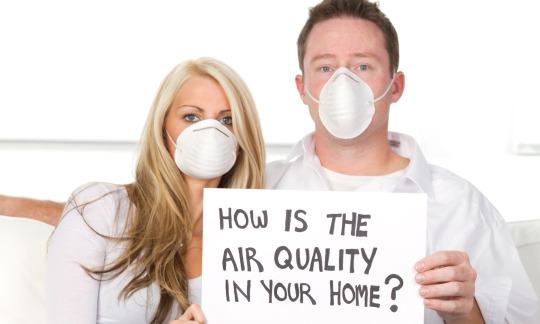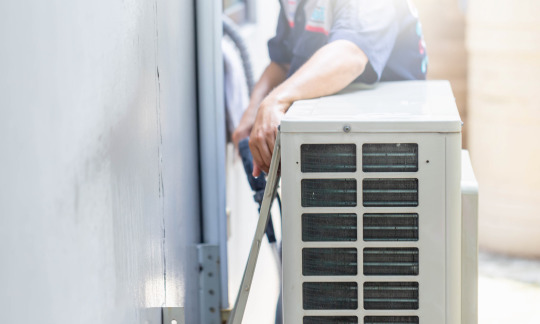Welcome to our new HVAC blog where we'll be posting all kinds of great content to help you save money and stay cool!
Don't wanna be here? Send us removal request.
Text
How HVAC Maintenance Improves Indoor Air Quality
With a very warm, humid climate, Slidell can be hard on trying to maintain a healthy indoor environment. As most homeowners battle with keeping their home comfortable, indoor air quality gets brushed to the side more often than not. Poor IAQ negatively impacts your health and irritates allergies. It may also affect the performance of your HVAC system.
Among the best ways to ensure indoor air quality is through regular maintenance of the HVAC. Let's explore how maintaining your HVAC system can help keep the air in your home cleaner and healthier.

Why Indoor Air Quality Matters
Indoor air quality refers to the condition of air in your home and how it may affect a person's health and comfort. Poor IAQ may give rise to respiratory discomfort, irritation, and an increase in allergy symptoms and chronic illnesses.
In Slidell, the subtropical climate creates unique challenges. High humidity encourages mold and mildew growth, while the region's warmer seasons bring increased pollen and other allergens into the home. Poorly maintained HVAC can actually make IAQ worse, not better-re-circulating dust, pollen, and other contaminants.
How Your HVAC System Affects Indoor Air Quality
Your HVAC system does more than just regulate your home's temperature; it also filters and circulates air while managing humidity. Over time, dust, dirt, and moisture accumulate in your HVAC components, reducing its efficiency and increasing the presence of airborne contaminants.
Clogged filters, dirty coils, and leaky ducts-these will circulate mold spores, dust, and pollen in your house if left unchecked. What's more, the increased moisture inside the system may well give rise to mold that grows and further deteriorates air quality.

The Benefits of Regular HVAC Maintenance
Regular maintenance in HVAC addresses these issues and makes your system a positive contributor to your IAQ. A very integral part of regular maintenance is cleaning or replacing air filters. Filters catch dust, pet dander, pollen, and other airborne particles. When filters become clogged, their efficiency decreases, and they can even restrict airflow, increasing energy consumption.
Other maintenance tasks include the inspection and cleaning of the ductwork. Dirty or leaky ducts allow the spread of pollutants in your home, but sealed, clean ducts ensure only filtered air reaches your living space.
Cleaning the evaporator and condenser coils is another important aspect. These are parts that could house moisture and dirt, thereby promoting mold formation. Keeping these areas clean ensures a smooth operation of the system, which in turn helps in maintaining humidity.
Finally, professional maintenance will optimize your HVAC's humidity settings for the climate in Slidell. Proper management of humidity not only increases comfort but also reduces the chances of mold and mildew.
Common Pollutants and How Maintenance Helps
Routine HVAC care helps in controlling many of the common pollutants found in homes, including dust, pollen, mold spores, and VOCs. Clean filters can capture these contaminants, reducing their numbers in your indoor air. Maintenance will also minimize the chances of mold spore proliferation in your home by removing moisture buildup and ensuring that dehumidification is appropriately done.
VOCs can also be found in household products such as cleaning supplies and furniture. While HVAC maintenance alone will not eliminate VOCs, proper airflow and filtration help reduce their concentration.
Poor Indoor Air Quality Signs
With lousy IAQ, you may feel symptoms like allergies: sneezing, coughing, or itchy eyes. Mold might be growing if there is a musty smell, while excessive dust can indicate that your HVAC filter needs to be replaced or that ducts are dirty.
Other symptoms of poor IAQ include hot spots, unusually high indoor humidity, and skyrocketing energy bills. These conditions indicate that the HVAC system is not working efficiently and probably needs professional service.
The Role of Advanced HVAC Features
Beyond routine maintenance, retrofitting advanced features into an HVAC system has the potential to improve indoor air quality. High-efficiency filters, like HEPA filters, catch much smaller particles than a typical filter and are a great addition to homes where residents have allergies.
Other powerful options include UV light technology. Installed in the HVAC system, UV lights eliminate bacteria, viruses, and mold spores by not allowing them to circulate in your home. Whole-house dehumidifiers can work with your HVAC system to keep the humidity optimal, especially in Slidell's humid climate.

DIY Tips for Maintaining IAQ
Of course, this is a professional maintenance job; however, there are things you can do to help keep the air clean between visits: changing air filters every one to three months, depending on your system and usage.
Regularly clean your house, including vacuuming with a vacuum cleaner containing a HEPA filter, if possible. Keep all vents and registers open to assure good airflow. Lastly, check the humidity level of your house, using a dehumidifier when needed to maintain the level between 30% and 50%.
Conclusion
Good indoor air quality inside the house is important for a healthy and comfortable living environment. HVAC maintenance is critical in ensuring that the system operates at an efficient level, filtering out pollutants and managing humidity.
Scheduling routine care and considering upgrades, such as advanced filtration or dehumidification, are all ways you can make your indoor environment cleaner and healthier for your family.
Slidell AC Repair
104 Kasey St Slidell, LA 70458
(985) 589-5588
slidellacrepair.org
Our Social Media:
Facebook
Instagram
YouTube
Twitter/X
Pinterest
Threads
LinkedIn
Google Site
1 note
·
View note